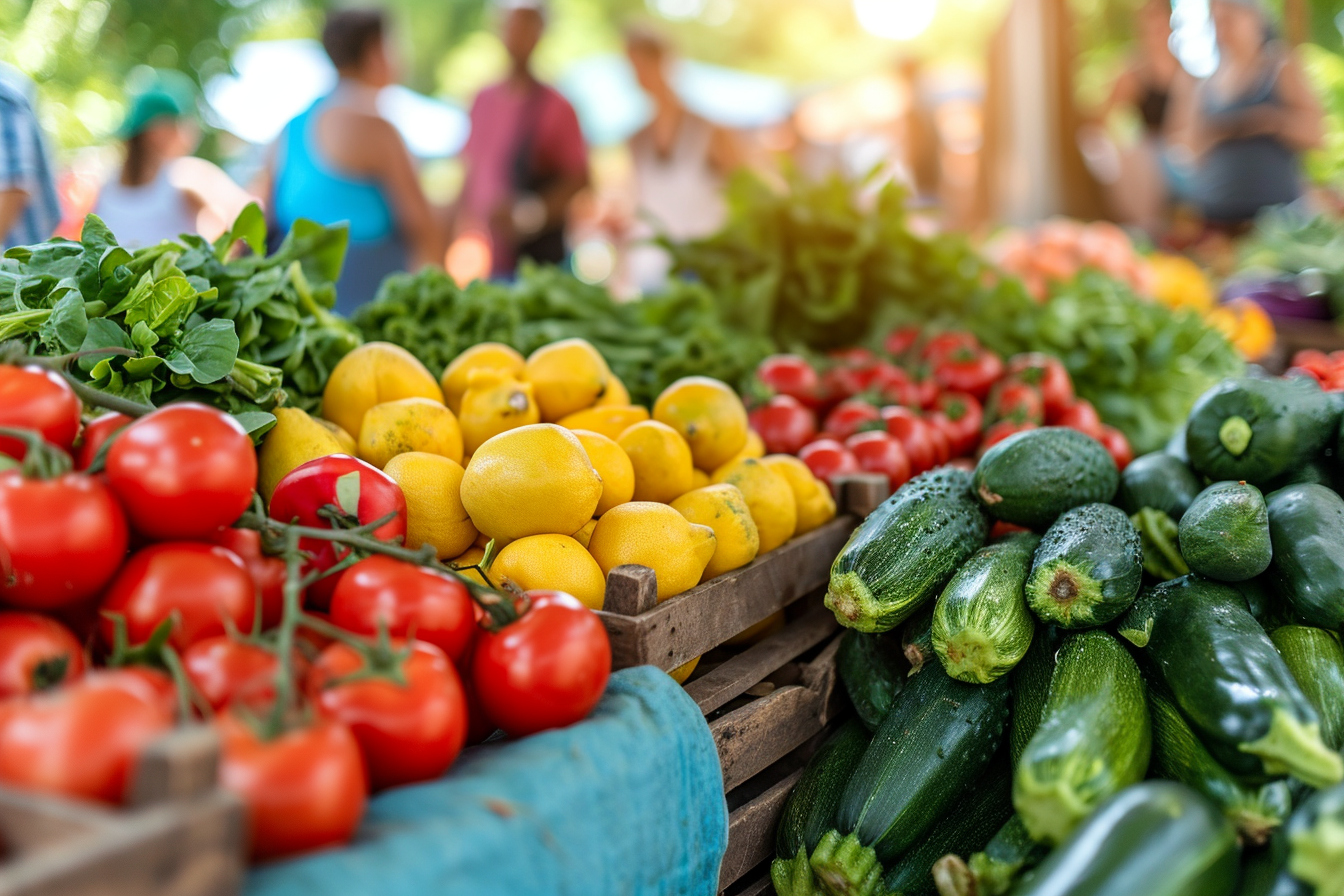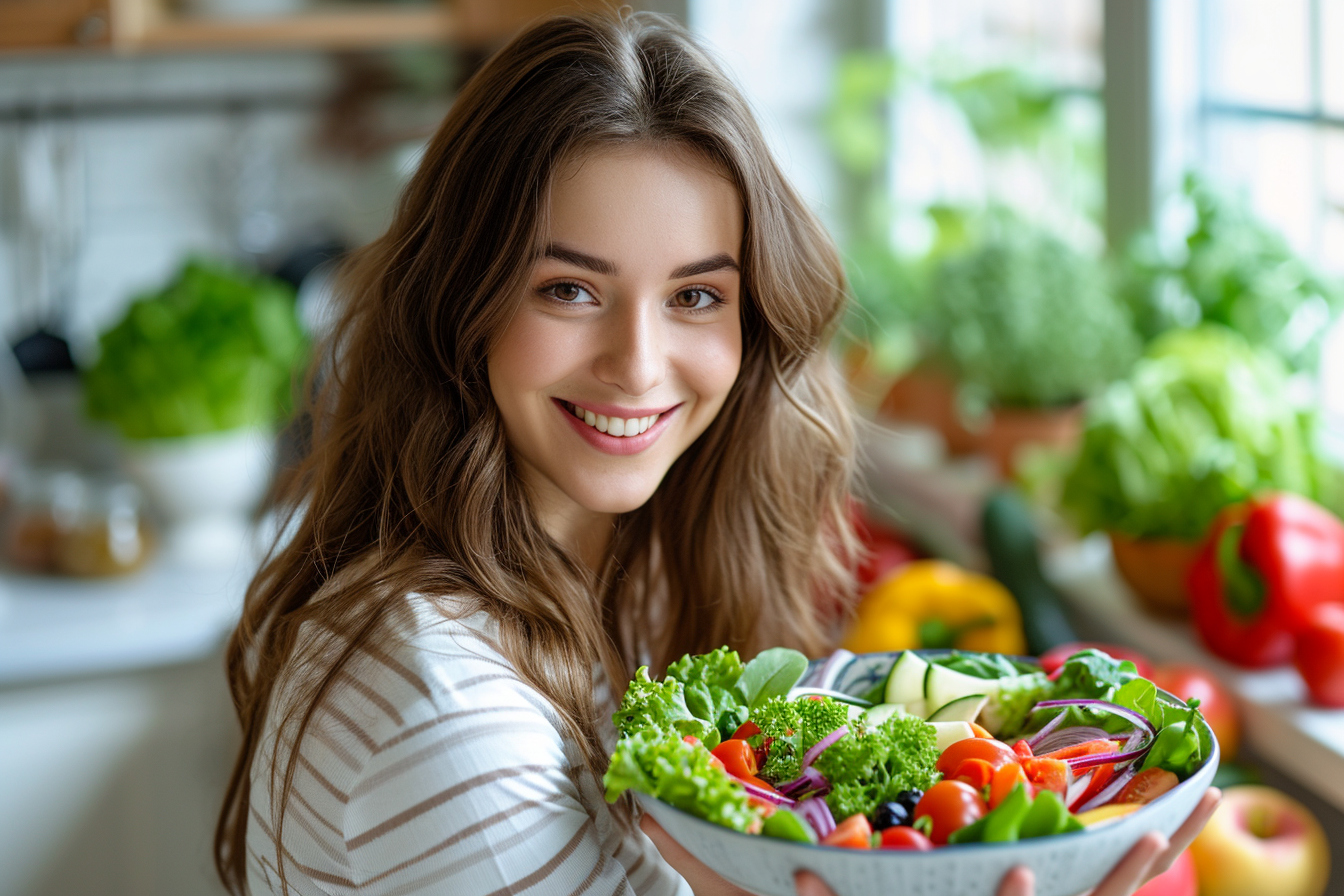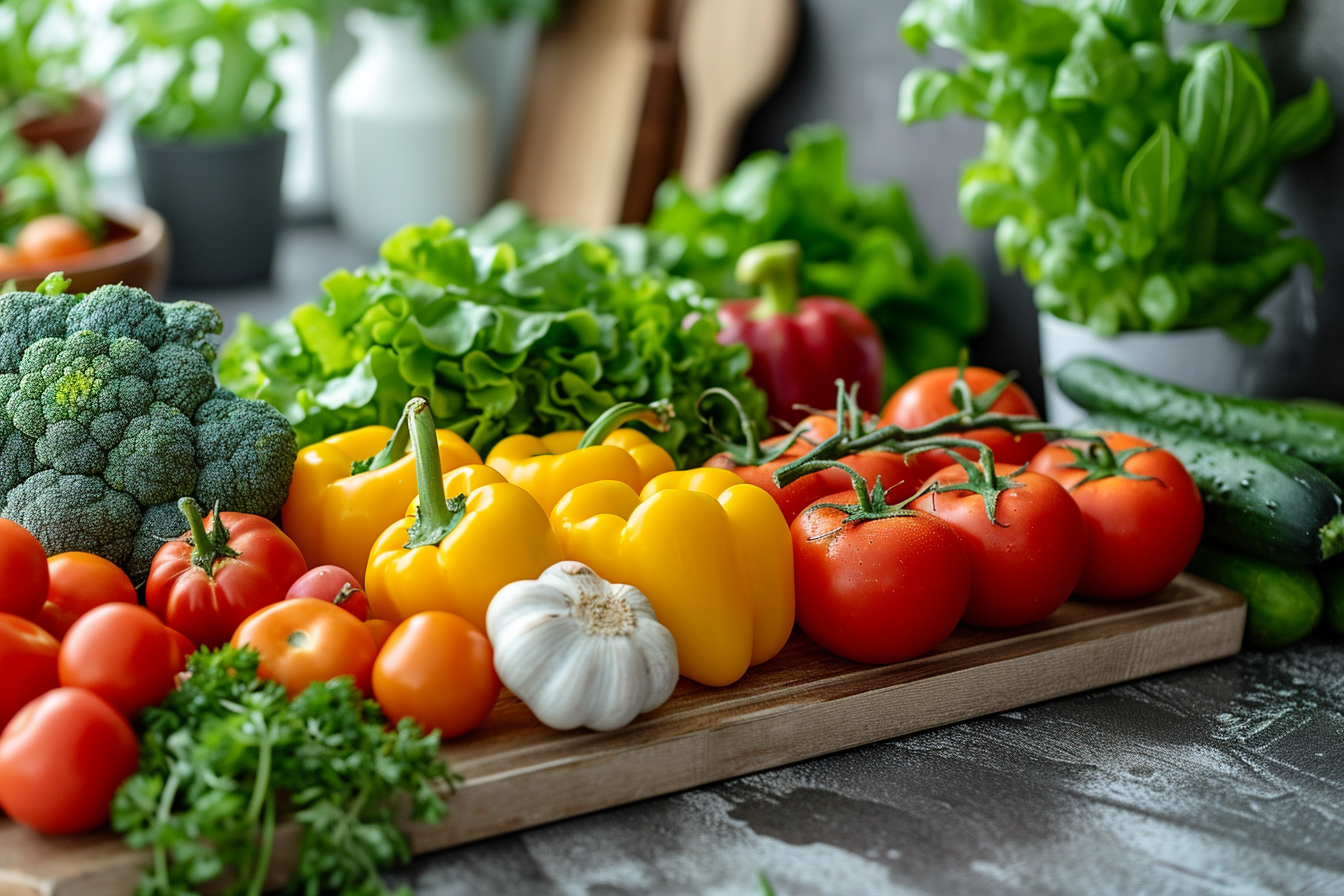A balanced diet is the key to a healthy life. The basic principles are simple: it’s about providing our body with all the essential nutrients it needs to function optimally. This involves eating a variety of fruits and vegetables, proteins, good fats, fiber and complex carbohydrates, without forgetting adequate hydration.
The ideal plate: For a balanced diet, imagine your plate cut into quarters. Half should be fruits and vegetables of different colors, a quarter good quality protein, and the last quarter whole grains or legumes.
Nutrient richness: Micronutrients (vitamins and minerals) are just as essential as macronutrients (proteins, fats, carbohydrates). Choose a variety of sources to meet your body’s needs for these precious nutrients.
Variety and color: Dietary diversity guarantees a wider range of nutrients. Don’t hesitate to experiment with new products and vary the colors of the foods you eat. Each color contains specific benefits: carotenoids from orange vegetables, flavonoids from blue and purple vegetables, etc.
Fruits and vegetables, essential allies
Rich in vitamins, minerals, fiber and antioxidants, fruits and vegetables play a crucial role in a balanced diet. Make sure you eat at least five servings per day. Consider seasonal fruits and a variety of vegetables to benefit from all their benefits. Green leafy vegetables such as kale or spinach are particularly recommended for their iron and calcium intake.
Good proteins, a wise choice
Animal proteins: Opt for lean meats, poultry, eggs, and fish – especially species rich in omega-3, such as salmon or mackerel. They provide essential amino acids.
Plant proteins: Legumes (lentils, chickpeas, beans), nuts, seeds and soy products are excellent sources of plant-based protein.
The Importance of Good Fats
Lipids are essential for the proper functioning of our body. Favor unsaturated fatty acids present in vegetable oils (olive, rapeseed, nuts), avocados, or even fatty fish. Limit saturated fats, mainly found in animal products and processed foods.
Complex carbohydrates for sustainable energy
Carbohydrates are the main source of energy for our body. Choose whole grains (pasta, rice, bread) and legumes, as they provide gradually released energy, in addition to containing more fiber and nutrients than their refined counterparts.
Hydration, a pillar of health
Water is the central element of our survival. On average, we recommend drinking at least 1.5 to 2 liters of water per day, in addition to liquids provided by food. Herbal teas and infusions are also a good way to diversify your intake, while avoiding sugary drinks and sodas.
Adopt good eating habits
A balanced diet is not just about what we eat, but also how we eat. The regularity of meals, listening to our own satiety and enjoying meals are essential.
The rhythm of meals, a balance not to be neglected
Structuring your food intake into three main meals and, if necessary, healthy snacks, helps to regulate your appetite and avoid impulsive snacking. Take the time to eat in a calm and pleasant environment, paying real attention to what you consume.
Listening to satiety, for a healthy relationship with food
Eating mindfully means recognizing the signals of hunger and satiety that our body sends. This helps avoid overeating and promotes digestion. Listening to your body also contributes to a better relationship with food.
Enjoying eating, an essential dimension
Well-being also involves the satisfaction we get from our meals. Cooking yourself, sharing a meal with family or friends, taking the time to taste each bite are aspects that make the eating experience richer and more pleasant.
The impact of lifestyle on diet

Food is part of an overall lifestyle. Physical activity, sleep, stress management are all interconnected and influence our food choices.
Physical activity, a complement to diet
Regular exercise isn’t just about burning calories. It contributes to our overall well-being, strengthens our muscles, bones and cardiovascular health, and even plays a role in our mood and sleep. Moving regularly promotes a healthy appetite and encourages the consumption of foods that are beneficial for our body.
Sleep, a factor influencing our eating habits
Studies show that lack of sleep can disrupt our hunger hormones and push us toward less healthy food choices. Ensuring restful sleep therefore indirectly helps to maintain a balanced diet.
Stress management for controlled eating
Stress can cause us to eat impulsively and reach for comfort foods that are often high in fat and sugar. Techniques like meditation, yoga or simply moments of relaxation can help to better manage emotions and, therefore, our food choices.
The effects of diet on health

A balanced diet is not only beneficial for staying in shape. It plays a major role in the prevention of many diseases, the improvement of our cognitive functions and the quality of our skin.
Disease prevention
Healthy eating habits can reduce the risk of cardiovascular disease, certain cancers, type 2 diabetes, and many other conditions. The food we eat affects our body’s regulation and, thus, our potential to deal with disease.
Cognitive benefits
Food also influences our brain. Foods rich in omega-3s, antioxidants and B vitamins, for example, are known to promote good brain health and potentially reduce the risk of cognitive decline.
The Impact on the Skin
Our diet is also reflected in our skin. A diet rich in fruits and vegetables, limited in sugar and processed foods, can contribute to brighter, healthier skin.
Ultimately, adopting a balanced diet is a global approach that is part of a conscious and thoughtful lifestyle. The choices we make every day have a profound impact on our future health and well-being. It is a commitment to yourself, an invitation to take care of your body and mind. Let’s embrace this culinary adventure with enthusiasm and curiosity, and make our diet a pillar of our healthy life.
What will be your next steps to move towards a more balanced diet? Even small changes can have big impacts and every step forward is worth celebrating. Nourishing your body with attention and respect is ultimately one of the most beautiful gestures of love that we can offer ourselves.












